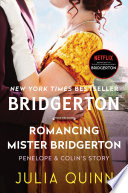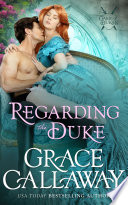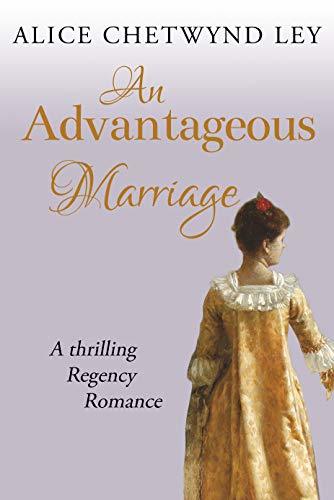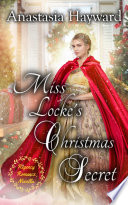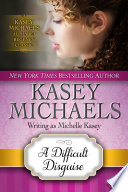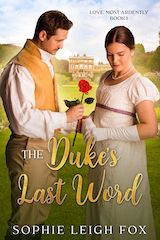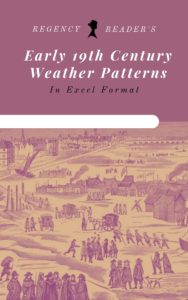She stood at danger’s threshold—then love beckoned her in.
In the shelter of her country cottage, Sara Fielding puts pen to paper to create dreams. But curiosity has enticed the prim, well-bred gentlewoman out of her safe haven—and into Derek Craven’s dangerous world.
A handsome, tough and tenacious Cockney, he rose from poverty to become lord of London’s most exclusive gambling house—a struggle that has left Derek Craven fabulously wealthy, but hardened and suspicious. And now duty demands he allow Sara Fielding into his world—with her impeccable manners and her infuriating innocence. But here, in a perilous shadow-realm of ever-shifting fortunes, even a proper “mouse” can be transformed into a breathtaking enchantress—and a world-weary gambler can be shaken to his cynical core by the power of passion…and the promise of love.
I had read this at least a decade ago after discovering Lisa Kleypas and enjoying her. I am sure I enjoyed it at the time but when I started to see Derek Craven popping up in Romancelandia Twitter (and then heard a lively discussion on Fated Mates) I figured it was time to revisit this book and see (or remember) what all the fuss was about.
As a preteen and teenager I read YA specific romances until I veered off course into non-fiction and more contemporary fiction. In college, burnt out from the sheer volume of reading, my roommate and I began picking up novels from grocery stores and gas stations and experimenting with the variety of romance. Pirates by Linda Lael Miller was one of our favorites, so much so that we recorded our own book on tape for it. Through my roommate/friend’s influence, I also read Jane Austen for the first time. And I think that is where I fell, at least a little bit, in love with the Regency era. Year after year it snowballed until that was my exclusive romance genre for many years (until the last several years when I have begun experimenting roundly).
My love for the Regency is a peculiar thing to me, simultaneously worth examination and worth ignoring the impulse to examine too deeply a thing that has become so entwined into my life. I explain all this because I think, and have tried to make it clear through being transparent about biases during reviews, that how we find romance and what we look for in them is as varied as the number of readers. And, beyond the difference between myself and the next reader, there are also profound differences between the reader I am at any given point in time and the reader I am in this very moment.
In my real life, I have come to realize that I have always been drawn to men romantically who would likely be described as beta. Or perhaps, like me, their gender and sexuality is a bit more non-binary than traditional depictions. But when I was younger, I don’t think I had figured that out yet. We didn’t have the words for non-binary. I wasn’t a tomboy. But I wasn’t girly. I lived in a world of “I am not this and I am not that.” The negative space is what defined me. Same thing for my romantic interests. I had to learn what the archaetypes were to discover what it was I didn’t like about them. I think escaping into the territory of bad boy alpha was exciting, escapism in a safe riskless risk sort of way that allowed me to explore my own thoughts about romance, gender and sexuality and what I really was looking for IRL.
I do remember, several decades ago, that beta historical romance heroes were few and far between and when I would find them in the pages of a Reg Rom, my heart would pitter pater in a way that was exciting and comforting. I am, without fail and unapologetically, much more #TeamTilney than #TeamDarcy. Its not that I don’t find some aspects of Darcy endearing or romantic, but having survived several grand heartbreaks, I find that the quiet, enduring spark has been, for me, the very definition of romance.
I was once Marianne, and then found myself to be much more Eleanor.
This is a very long preamble for a review where normally I am a quick and cut to the chase sort of reviewer. But this is one of those books that reviewers either love or hate. And I have seen reviewers change their ratings after re-reading several years later. Inherent are two issues I want to tackle, that I have been thinking a lot about, so forgive me for going off the normal review script towards more of a think piece.
The first issue is that we change. And therefore, our relationship with books change. And that is a good way to learn about ourselves.
The second one is a monster issue and can be summed up thus: no piece of fiction is created in a vacuum and rather carries with it values, moreways, folkways, etc of the era in which it is created.
Over the last several years, romance fans and writers have hotly debated historical accuracy in books. Some believe the term is used as a dog whistle for racists or sexists or other people in privilege (ie, a sex worker marrying a Duke is not “historically accurate”). I think in some cases this is probably true. In other cases, there are readers who are interested in engaging with the history and not all authors do their research.
Often, the conviction about historical accuracy in historical romance is actually based not upon history but upon assumptions informed by other fiction (movies, tv, and other books). It’s like a form of subconscious meta.
But that’s not what I want to talk about today. What I want to talk about is the reverse side of that coin, taking an old piece of fiction and re-reading it with contemporary values and then judging it as somehow “lacking”.
I have seen a lot of recent think pieces on popular fiction (books, tv and movies) and how it “ages well” or does not. And I have been thinking about this a lot, mostly because of comedy and how the very nature of what we find funny often intersects with things that make us uncomfortable. I can’t think of anything more unfunny than a perfect character without flaws or follies. And what we find funny changes with out own experiences and the culture at large.
I think the same can be true for non-comedy, however, and find this is the perfect book to talk a bit about how problematic that framing is and how if, conversely, we want to defend against historical accuracy arguments it would be better to focus on context.
When I am writing a review I like to pop over to GoodReads and peruse what others have said. I have found over the years that this is a good way to test my own biases and make sure I am being transparent. For Dreaming of You, readers either love or hate this book. With some exceptions in the three and four star range.
And several of those reviews go something like this, “I used to think this book was a 5 star, but I just re-read and have a problem with x.” The x varies, but in most cases it related to Derek Craven and his rakish ways. The alpha as expressed in 1994 is problematic when looking with eyes from the 2010s. Some note the juxtaposition between virgin/whore. Some don’t like that Derek has relations with other women after meeting Sara (even though they aren’t together during these times). Some of these issues can be personal. As individuals, we change as readers and sometimes books we loved change with our experiences/age (boy, Catcher in the Rye was a wild re-read twenty years later). I think it’s healthy to identify this and name it. It helps the reader (and maybe other readers) sort out their own values, how those change, and maybe figure out what they like. Romance reading certainly helped me figure out why I gravitated more towards non-binary leaning dudes. Alphas were amusing, but not pants feeling for me (and this is an important reason why representation matters).
Where this line of critique becomes problematic is when we then lazily say “this piece of fiction didn’t age well,” without offering the context from when it was written, instead applying the contemporary lens to an older piece of fiction and expecting it to mirror current day values and beliefs. Here are a couple of readers who have written about 90s alphas and what a reader could expect (http://theromanticalskeptic.blogspot.com/2013/08/old-school-alpha-heroes-get-even-hotter.html and https://smartbitchestrashybooks.com/2007/08/on_alpha_heroes/). There are also academic works about the cultural influences on romance; Cultural Influences on the Popular Romance Genre in the Encyclopedia of Romance Fiction gives a rundown on all the ways contemporary socio-political and economic forces influences heroes/heroines and plots. I am positing that this is a more interesting analysis or take…what was going on in the world at the time of creation of the piece of fiction that made x relevant, acceptable, or worth explanation.
Sara Fielding is introduced to Derek Craven in a meet-shoot (not cute and involves firing of a weapon). And even after she saves his life, he is a complete jerk to her. Domineering, aggressive and rude. To me Derek Craven is the quintessential Beast and Sara is many ways fits the mold of Belle. She is inquisitive, independent, patient and selfless. This archaetypal story is probably a sweet spot for some readers.
In Beauty and The Beast, the heroine’s love saves and transforms the hero. This is very much the main theme of Dreaming of You. Sara doesn’t have much of a transformation, except that in some ways she realizes her own value or worth through loving someone (not unlike Belle). But Beauty and The Beast is about other stuff, too, relevant to when it was created (https://www.glamour.com/story/the-real-story-behind-beauty-and-the-beast-is-not-what-you-think). Naturally, people have written “doesn’t age well” think pieces about the recent BATB movie: https://sojo.net/articles/beauty-and-beast-remains-enchanted-and-problematic and https://www.pastemagazine.com/articles/2017/03/beauty-and-the-beast-toxic-masculinity-and-fake-fe.html are just two.
Reimaginings are difficult, because in many ways they aim to be true to the source material while “spinning” it in a new way. For the new BATB movie that mainly seemed to consist of using fancy CGI. The think pieces are grapple with elements of the original story that “haven’t aged well.” Mainly, Belle is held captive by an abusive alpha until she changes him. When read that way, hells yeah it’s a scary story to try and spin romantic for kids (target market). But when we think about the “real story” (see Glamour article linked above), eg this was a way to get young girls forced into arrange marriages to feel comfortable…well it doesn’t make it any better, but at least gives context. And offers an opportunity to ask a more interesting question: why does this story still resonate with audiences today? And isn’t the point of stories to grapple with our real lives?
I have so much more to say about this issue, but I don’t want to belabor it. But I would like to turn my focus to Dreaming of You and why I think Derek Craven still resonates with many readers today, and is often held up as one of the most romantic heroes of all time. Derek is presented as an almost unredeemable, wounded, mythological beast of a man. A rebuff from him makes women go bonkers. All men, even Dukes, want to be him. All women want to be with him.
And to top it off, he is secretly benevolent, charitable…a beast with a heart of gold.
He is also a self-made man. Literally born in the gutters, he is rumoured to now be one of the richest (if not the richest) men in England.
And he is not so much handsome as he is alluring, appealing, intense and magnetic.
What I like about Derek Craven is probably what makes him problematic. He is unapologetic for his past and current behavior. He is not a Gary Stu. He is raw and real. Considering most “raw and real” is served up anymore ala scripted reality tv, his presentation can be uncomfortable at times. But I found it interesting. And stark against his moments of real tenderness which I think give readers who respond all the feels.
This book is so breathtakingly beautifully written in sections, I had to stop and admire it. There is an authenticity about Kleypas’ writing that makes her characters feel real. I didn’t get all the heart lurches and leaps that I do with other well-crafted romance, but I did feel the payoffs were well earned.
And the romance is good. It’s the kind of “these two are destined for each other” kind of epic romance that is often the reason readers read romance.
The historic elements are on point, too, in a careful and seamless way.
The characters (especially Derek) also get good arcs, there is a villain thrown in to keep the plot moving forward (although arguably the villain is now an element that will turn off some readers), and there are good supporting characters that help frame the romance. There is also a gritty element to the side of London Kleypas shows that feels like a great backdrop for an epic romance.
During the 1990s, many historical romance heroines began to emerge as independent, inquisitive and driven. Sara is a perfect example of these early iterations of heroines. She has a deep awareness of her singularity and desperately wishes to be like other women, but finds herself so markedly changed that she can’t go back. It’s a fine representation of what many women were going through in the 90s when awareness over sexual harassment, assault, abuse were on the rise and third wave feminism began to redefine what is was to be a feminist. A modern reading of this character might have problems with elements of cultural appropriation in her books about sex workers or the working class. But in the 1990s, cultural appropriation was not understood in the way it is now.
The love story is believable, romantic, epic and worthwhile of a read or re-read. I found it, decades later, to be an exercise in understanding my changing tastes and values and also a good way to frame something I have thinking a lot about.
I encourage all readers and writers to not take the easy way out through the shorthand “doesn’t age well” and instead engage with the context and what it meant during the time of creation versus now. I think in order to combat the less exalted impulses of “historical accuracy” claims we must have an open dialogue that no piece of fiction is created in a vacuum, that culture does influence our characters, plots and other choices, and we can tell a historically accurate story in a way that reimagines archetypes to support and enrich our values. And maybe the next time BATB gets remade we realize that while it may be a story of abuse and Stockholm syndrome, it could also very well be a story about how a bookish young woman overcomes toxic masculinity through measured application of compassion and education. Or, that for a story meant to soothe child brides it still resonates because under everything it is a story about the ability of love to transform.
More reading: https://www.theatlantic.com/sexes/archive/2013/03/beyond-bodice-rippers-how-romance-novels-came-to-embrace-feminism/274094/
Listen to Fated Mates talk Alphas and Derek Craven: https://fatedmates.net/episodes/tag/Derek+craven
 4.75 out of 6
4.75 out of 6
| Content Rating/Heat Index | |
|---|---|
| Mature Content | |
| Adultery, prostitution, gambling | |
| Intimacy | |
| Several scenes. More of the vanilla variety | |
| Violence | |
| Abduction, assault, murder, fire, fisticuffs | |
| Overall | |
|---|---|
| Best for readers okay with the gamut of mature content including violence. | |
CW: Sex work, domestic violence, fire, assault, and one or two characters with severe personality disorders


